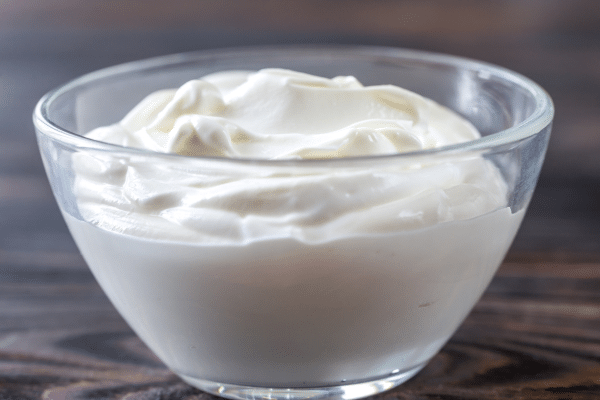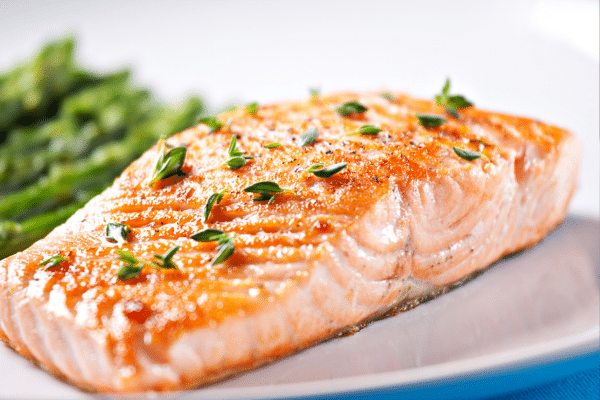Nutrition plays a pivotal role in building muscle, an aspect often as crucial as the workout itself. Selecting the right foods not only fuels the body but also enhances muscle growth and repair. This blog post delves into several key foods that are essential for anyone looking to gain muscle. From the high-protein powerhouses to the nutrient-rich staples, each food item discussed offers unique benefits to support fitness goals. Understanding their roles and how best to incorporate them into a diet can significantly impact muscle-building efforts.
Eggs

Eggs are a powerhouse of nutrition, essential for those looking to build muscle. They contain high-quality protein, which is vital for muscle repair and growth. Proteins in eggs have a complete amino acid profile, making them particularly effective for muscle synthesis. Besides protein, eggs are also rich in vitamins, including B12, which is crucial for muscle contractions and the health of nerve cells. Additionally, the yolk offers a good dose of healthy fats and nutrients like choline, which supports metabolism.
Incorporating eggs into a muscle-building diet is both versatile and convenient. They can be cooked in various ways – boiled, scrambled, or poached – making them a practical choice for any meal. For those monitoring calorie and fat intake, consuming egg whites while discarding the yolk is an option, though it’s important to note that the yolk contains most of the egg’s nutrients. Eggs also pair well with whole grains and vegetables, offering a balanced meal that aids in muscle growth and overall health.
Greek Yogurt

Greek yogurt stands out as an excellent food for muscle building due to its impressive protein content, which is almost double that of regular yogurt. This protein is a mix of fast-digesting whey protein and slow-digesting casein protein. The presence of casein means that consuming Greek yogurt can provide a steady supply of amino acids to muscles, making it an ideal snack, especially post-workout or before bed.
Aside from protein, Greek yogurt is also packed with important nutrients like calcium, which is essential for muscle function and overall bone health. Its probiotic content aids in digestion, ensuring that all the nutrients from food are efficiently absorbed. For those looking to add Greek yogurt to their diet, it’s excellent when mixed with fruits and nuts for a nutritious snack or as a base for smoothies. Its thick and creamy texture also makes it a great substitute for sour cream or mayonnaise, adding a protein boost to meals.
Salmon

Salmon is renowned for its benefits in muscle building, primarily due to its high content of omega-3 fatty acids and quality protein. These omega-3 fatty acids are known not just for their heart health benefits but also for reducing muscle inflammation post-exercise, which aids in quicker recovery and muscle growth. The protein in salmon assists in repairing and building muscle tissue, especially important after workouts. Additionally, salmon is a great source of vitamin B12, vitamin D, and selenium, which are all crucial for optimal health and muscle function.
For those aiming to gain muscle, incorporating salmon into the diet offers both taste and nutrition. It can be grilled, baked, or steamed, and pairs well with a variety of seasonings and sides like vegetables and whole grains. Consuming salmon a few times a week can provide the necessary nutrients to support muscle growth while also offering a change from the usual chicken and beef protein sources. Moreover, its high content of healthy fats helps in keeping the diet well-rounded.
Oatmeal

Oatmeal is an excellent source of complex carbohydrates and is essential for those focusing on muscle gain. It provides a sustained release of energy, which is vital for fueling long, strenuous workouts. The fiber in oatmeal aids in digestion and helps maintain a steady blood sugar level, which is crucial for consistent energy levels and avoiding crashes. Additionally, oatmeal is a good source of protein, which complements the proteins consumed from other sources, ensuring a balanced nutrient intake.
Incorporating oatmeal into a fitness-focused diet is both easy and beneficial. It can be consumed as a breakfast staple, mixed with protein powder for an added muscle-building boost, or as a pre-workout meal to provide steady energy. Oatmeal can be flavored with fruits, nuts, and spices like cinnamon, making it not just nutritious but also a delicious part of a muscle-building regimen. Its versatility allows for numerous preparation methods, ensuring it never becomes monotonous.
Chicken Breast

Chicken breast is a staple in the diet of many fitness enthusiasts and bodybuilders, and for good reason. It’s an excellent source of lean protein, which is essential for muscle repair and growth. Chicken breast is low in fat and calories, making it an ideal choice for those who are watching their calorie intake. It’s also rich in B vitamins, particularly niacin and B6, which are important for energy production during workouts.
Chicken breast is incredibly versatile and can be cooked in countless ways. It can be grilled, roasted, or stir-fried with a variety of vegetables for a balanced and nutritious meal. Its mild flavor makes it a great canvas for different spices and marinades, allowing for diverse and tasty preparations. Regular consumption of chicken breast, coupled with proper training, can significantly contribute to muscle growth and strength gains.
Quinoa

Quinoa is increasingly popular among health-conscious individuals, especially those aiming for muscle gain. This grain is not only high in protein but also contains all nine essential amino acids, making it a complete protein source. It’s also packed with fiber, magnesium, and iron, all of which are vital for overall health and optimal muscle function. Quinoa’s complex carbohydrates provide sustained energy, crucial for endurance and performance during workouts.
Adding quinoa to a muscle-building diet is straightforward and beneficial. It can serve as a base for salads, be mixed with vegetables and lean proteins, or used as a substitute for rice in various dishes. Its nutty flavor and versatility make it an appealing addition to any meal, ensuring a balanced intake of proteins, carbs, and essential nutrients. Regularly including quinoa in meals can aid in muscle growth and provide the energy needed for rigorous training sessions.
Spinach

Spinach is an excellent food for muscle growth, loaded with essential vitamins and minerals. It contains high levels of iron, which is crucial for muscle oxygenation during exercise. Spinach is also a good source of magnesium, necessary for muscle function and energy production. Its high vitamin C content supports the immune system, which is important for overall health and recovery. Furthermore, the nitrates in spinach have been shown to improve muscle efficiency and endurance.
Incorporating spinach into a diet is easy and beneficial for those aiming to build muscle. It can be added to smoothies, salads, or cooked as a side dish. Spinach can also be included in omelets or sandwiches for a nutrient-rich meal. Its versatility and mild taste make it an ideal green to pair with various cuisines, ensuring regular consumption in a muscle-building diet.
The Bottom Line
Achieving muscle growth requires more than just consistent training; it demands a balanced diet rich in specific nutrients. The foods highlighted in this blog post provide a combination of proteins, complex carbohydrates, healthy fats, and essential vitamins and minerals. Regularly incorporating these foods into a diet, along with adequate exercise and rest, can significantly enhance muscle gain efforts. Each of these foods offers unique benefits and can be prepared in various ways, ensuring a nutritious and enjoyable diet tailored to muscle-building goals.


